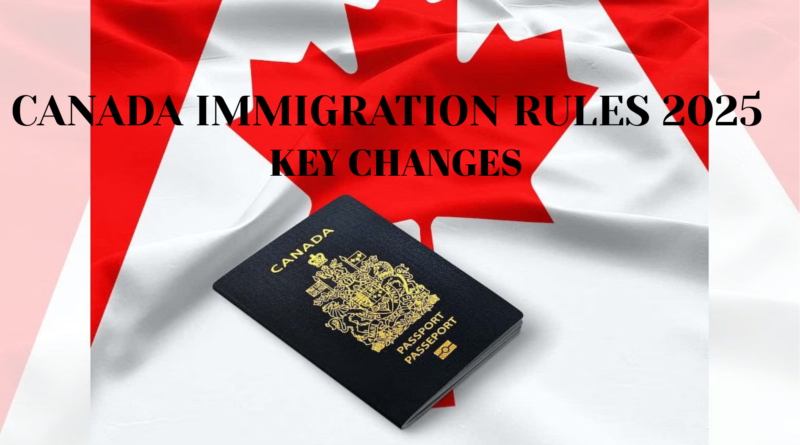CANADA’S NEW IMMIGRATION RULES 2025 – WHAT YOU NEED TO KNOW
In 2025, Canada has introduced new immigration rules that aim to make the system faster, more skilled-based, and better aligned with the country’s labor market needs. These changes are meant to attract people who can contribute to Canada’s economy and fill gaps in industries like health care, tech, and construction. The government is also focused on keeping families together and supporting international students and workers already in Canada.
One of the biggest updates is the introduction of a points-based express entry system that now gives more importance to specific job skills and work experience. People with experience in high-demand jobs like nurses, electricians, truck drivers, and software engineers will get extra points. This makes it easier for skilled workers to receive permanent residency faster than before.
Another key change is the limitation on student visa approvals. Canada has seen a huge rise in international students, so the government is now placing a cap on study permits to manage housing and job pressures in big cities. Students must now show stronger proof of financial support and be accepted only into recognized institutions.
For those already living in Canada as temporary workers or students, there is some good news. The government is creating a new pathway for permanent residency for people who have Canadian work experience, good English or French skills, and a history of paying taxes. This is meant to reward those who are already helping Canada grow.
Family reunification remains a priority in 2025. Spouses and children of permanent residents and citizens will still receive fast processing, but stricter background checks and income requirements have been added. This is to ensure that newcomers have enough support after arrival and don’t face hardship.
Overall, Canada’s new immigration rules are about quality, not just quantity. The focus is on bringing people who are ready to work, settle, and succeed. If you are planning to move to Canada in 2025, it’s important to stay updated on these rules and prepare your documents early.




